|
11/7/2024 0 Comments SWIFT EVENTS Newsletter | Issue 17 This final EVENTS issue for the academic year 2024 - 2024 includes a featured article, as well as highlighted programmes, courses and events from our partners to support your professional development and enhance the work of your school. Featured in this issue we have: SWIFT Membership 2024 - 2025 | Registration now open We are delighted to open registration to Schools, Federations, Trusts and other bodies to join SWIFT Membership for 2024 - 2025. Find out more in our Membership Brochure HERE and the link for registration is HERE. Highlighted Programmes:
0 Comments
2/7/2024 0 Comments 2024 Devon Art Teachers Conference | plus a FREE creative opportunity for Torbay SchoolsLed by the inspirational Art Subject Specialist, Sam Eyre, from Coombeshead Academy, and supported by Joe Long, Art Lead at The Spires College, Primary and Secondary Art Teachers attended the 2024 Devon Art Teachers’ Conference last month with an informative and inspiring agenda. Attendees benefitted from updates and feedback on the AQA assessment objectives from Aly Diggle-Perry and Sandra Allan from AQA Examination Board, who provided a valuable opportunity for attendees to see an exhibition of exemplar work from students to support assessment. There were lots of resources and links to tap into about grants, funding and projects by freelance artist Claire Harmer; a former teacher, who uses South Devon as the inspiration for her work and works directly with schools (find more information here). Teachers were challenged to delve into the world of AI, as Sam presented opportunities and challenges of implementing artificial intelligence in the art classroom, such as how to use AI to create digital pictures. Enriching information that may help to keep us one step ahead of our learners! One of the most valuable parts of the day centred on networking with colleagues and sharing from experiences, with teachers having an opportunity to share their challenges and find solutions to improve their practice for their pupils. There was also time to explore the vast array of arts and crafts at Bovey Tracey’s annual Craft Festival and to meet many crafts people and observe workshops, demonstrations and talks, taking away ideas to use back in their own settings.  A must for all training days is the refreshments, and Rodney’s café, based at MAKE Southwest, provided delicious lunch and cakes. Feedback from the day was enthusiastic praising: "The range of presentations and passion from each presenter.’ "The opportunity to network with fellow Art Teachers, connect with potential future projects/funding and links with teachers for future CPD links.’ "To hear about relevant issues for Art and Design." "The contacts and varied resources and speakers." Planning is already underway for next year’s conference and looking forward to sharing with primary and secondary Art Teachers across South West schools. With thanks to Sam and Joe for their leadership. Report by Tania Cox, Partner Director, West Country Training School Alliance MAKE Southwest Hosted by Educational Manager Ian Wilkins at MAKE Southwest in Bovey Tracey, this craft education charity is funded by Arts Council England with a thriving membership of over 300 crafts people, with an engaging exhibitions programme and retail gallery, championing the highest standards of craftsmanship since its formation in 1955 and has become a leading advocate for crafts education. A FREE Creative Opportunity for Torbay Schools Craft Council Material World Project - a funded opportunity for school teachers Outreach Programme Craft School is open to all schools nationwide, but other geographical areas have been identified where they would like to increase participation in Blackburn, Kirklees and Torbay with a wish to boost participation from schools with higher levels of Pupil Premium funding. The Craft School Outreach programme will offer additional training to prepare and support teachers through the delivery of Craft School working with 12 teachers from six schools in each region over two academic years. The programme is offered to schools free of charge and will aim to:
Two members of staff from each school, notably Teachers, Teaching Assistants, Technicians or other support staff are all welcome to participate and will be able to attend professional development sessions, which will include an element of practical making.  Torbay Project Timeline Thursday 11 July 2024 from 1630 – 1830 | First face-to-face professional development session. September 2024 | Second Torbay professional development session. September 2024 | Enrol in Craft School: Material World. October 2024 | Third Torbay professional development session. September / October 2024 | Start to deliver Craft School: Material World with learners. To make use of Craft School Teacher toolkit, professional development sessions and other resources. December 2024 | First Torbay online support session. February 2025 | Second Torbay online support session. April 2025 | Submit evidence of learners’ work and making journeys to Craft School: Material World (online portal). May 2025 | Judges select work for awards (one per Key Stage). June 2025 | Online celebration event for all participants. Commitment from Schools Participating schools will be asked to commit to the following:
For More Information
Contact Hassina Khan or Ian Wilkins. 27/6/2024 0 Comments Interview with Paul Brooks, Retiring Chair of Kingsbridge Community College Governing Body and the SWIFT Trust Board “When I was Deputy Principal, I used to say that every child in our school needs to enjoy our school and to come out at the end of each day and know that they have enjoyed something in their lessons. I believe now, as I believed then, that it is possible.” For this final interview of academic year 2023 - 2024, we were glad to speak to Paul Brooks, who is retiring from the Kingsbridge Community College Governing Body. Mathematician graduate Paul, started his teaching career in 1981 in Birkenhead and went onto teaching and leadership roles in Bideford, Bristol and Swansea, and gained an MEd in Maths Education at the University of Exeter. In 1998, Paul became Deputy Principal at Kingsbridge Community College (KCC) and played a key role in Ofsted inspections, culminating five years later in an Outstanding judgement. Paul led KCC’s successful bid to be a Specialist School in Science, Maths and Performing Arts and was keenly involved in the bid to become one of the first Teaching Schools, South West Teaching School Alliance (SWTSA), which he led from 2011 to 2016; growing a membership of 12 schools to over 130. Curriculum was always a key role for Paul as Teaching and Learning Lead; as well as Development Lead and Facilitator for Leading Schools South West on their NPQSL programme. In retirement from his leadership role at KCC, Paul has been a dedicated member of Kingsbridge Local Governing Body and also Chair of the SWIFT Trust Board. Using his mathematical tactical skills perhaps, Paul is a keen County Standard Chess Player and jointly runs Newton Abbot Chess Club and for many years he was President of the Devon County Chess Association. As a tribute to Paul and the work of all Governors in Schools and Mulit Academy Trusts, we are delighted to share Paul's reflections as he steps down (once and for all) at the end of this academic year. 1. What has been most personally rewarding from your involvement with the Kingsbridge Community College Governing Body? It has been most personally rewarding to continue to be involved in what I think is a really top-class organisation that has a very important role in our educational landscape. I have been involved in Teaching Schools from their very beginning and I immediately believed it was the very best way of developing teaching and learning within our schools. I think teaching at the moment is as hard as it has ever been, and maybe even harder and I am passionate that teachers from the start of the career and all the way through, have the opportunity to experience the very best training; because when we come into teaching, I think we all have an idea of what makes a good teacher, which essentially comes from our own background and provides a great starting point for our classroom practice. But developing and improving that practice can be challenging and I think the only way you can do it is if you have from the very start of your career the opportunity to experience high-quality professional development and support in your school. For me, this can come about by schools working together and learning from research and striving to ensure that their teachers benefit from such opportunities. This way, I believe that teachers can get the very best outcomes for their students. My involvement over the last few years as Chair of the SWIFT Trust Board has given me the opportunity to see and be impressed by the way in which SWIFT has developed from what was an idea of schools collaborating together by sharing data and seeking improvements in a much more structured way. Teaching School Hubs, like SWIFT, are providing opportunities that enable the very best development in our teachers and school leaders. That is why I am so excited that SWIFT is moving into initial teacher training, because I think that keeps the Golden Thread (as the Department for Education terms it) going from the start of a teacher's career with the Appropriate Body Service and Early Career Framework to National Professional Qualifications. For me, that is the very best model and I consider this to be a golden opportunity in delivering that best model. Being a Governor on the SWIFT Trust Board and working with the other Governors is a way to give back in helping to see and contribute to the work that is being done, monitoring and checking this work and supporting it to be the very, very best. 2. And what has been the most challenging? Truthfully, I have been pleasantly heartened in how well the SWIFT programmes have been progressing. The Appropriate Body Service and Early Career Framework roles are being led so effectively that targets have been exceeded in terms of the volume of participants and their feedback is very positive. I think that the SWIFT Team is doing a magnificent job in continually implementing, developing and monitoring this work. For me the main challenge going forward will be the successful implementation of initial teacher training, because that requires a much broader range of stakeholders and very thorough monitoring. The provision will be subject to Ofsted inspections and hence, the biggest challenge will be ensuring this provision is as effective and robust as possible. Indeed, I am a tad sad that I am leaving when the course is about to start at the end of August, because I think that it has the potential to be very exciting for SWIFT. The current biggest challenge for all Governing Bodies is to support their schools in what are very difficult financial circumstances. Schools are having to make decisions now much more on the basis of what they can afford, than on the basis of what is best for their students, than at any other time over the past 25 years that I have been involved in school leadership. Governors have a demanding role in supporting schools to make the very best decisions in these constrained circumstances. 3. What has been the most significant change during your tenure?
In my role as Chair for the SWIFT Trust Board, I would say that, the most significant change has been the move to initial teacher training and as previously mentioned, I think that this has the most significant potential in terms of SWIFT developing further as a leading provider. In terms of education as a whole, I think the whole Teaching Schools movement has been the most significant development for me and it certainly made a step-change in my role within school, when back in 2011 funding was made available for a few schools to develop structured opportunities for collaboration, training and development, alongside a professional development programme for senior leaders. It was an inspired decision and I think those participating schools have certainly benefited more than any other innovation. Previously, there was lots of chatter about how schools could work together, but without a real structure. It can only be a good thing now that we have the joined-up approach through Teaching School Hubs from the start of a teacher’s career to the end with opportunity to grow and develop and access high-quality professional development. Hence, I believe the Teaching School Hubs initiative has been the most important innovation over my past 40 years in education. 4. How has your position as Chair of the SWIFT Trust Board benefitted you? It has been the opportunity to see the excellent work that is going on and to feel as though I am a small part of the machinery in developing the brilliant organisation of Education South West and SWIFT. I have also valued keeping up-to-date with what is happening and the way in which here in the local area we are providing so many opportunities and the enthusiasm in which those opportunities are being embraced. To me, this has been a very positive personal development, because I am passionate about the idea of learning from other professionals and research and the fact that we have a successful organisation that is leading on this development work. 5. What would be your number one wish for schools in the future? I would wish that every school and every teacher in the country has the opportunities to grow ultimately to support the best learning of our students. I only hope that the future Government has the wisdom to continue to develop and strengthen the role of professionals learning from other professionals and to give schools the funding to do so. The other big elephant in the room for me, is the appropriateness of the curriculum for the modern student. I think that some content for Year 6 English lessons is reminiscent of my first year at grammar school in 1969. It might be useful, but it is not going to motivate and enthuse those students who find academic learning difficult. When I was Deputy Principal, I used to say that every child in our school needs to enjoy school and to come out at the end of each day and know that they have enjoyed something in their lessons. Not only the social side, but from a course of study that they loved and I believe now, as I believed then, that it was possible. What I hope for the future is that more common sense comes to the fore and we recognise that if we wish to have “a world class education system,” we need to resource it as a world class education system. Particularly in terms of the curriculum. My role in school was to oversee the curriculum and I think that it is impoverished at the moment for a large section of the school community. I would say that at least a quarter of the school population has a curriculum that is not really fit for purpose. I would like to see a big rethink about the curriculum, the way in which it is taught and what is on offer for our students, particularly for those who are not as academic, and who would thrive with more practical learning opportunities. I believe that many of the problems we currently have with attendance and behaviour would be alleviated if we got the curriculum right, and enabled more students to enjoy and achieve success in their learning. As an example, we used to bus some of our students to South Devon College for one or two days a week to study practical subjects that they were genuinely interested in, such as car mechanics and beauty therapy. This encouraged buy-in to the school as they really wanted to go there and it had a big impact in improving their behaviour. However, the narrowing of the curriculum by the new Progress 8 school performance measure and tightening budgets meant that we regrettably had to stop this provision. I would like to see politicians and school leaders get together to devise a curriculum that actually suits the students in school. Because at the moment, when I look back to when I started teaching, the curriculum now is only slightly better than it was then because now we have the National Curriculum and everyone has an entitlement and the teaching quality is much higher than it was 40 years ago. Also, the way in which teachers are developed is much better than it was at the start of my career. But the school curriculum itself hasn't changed with the times and still has lots of room for improvement. I remain hopeful and know that school and Trust leaders are working hard to provide the best education for their students and the work of SWIFT is supporting this work as one of the backbones for professional development. We warmly thank Paul for his commitment and loyalty on the KCC Governing Body over the past 25 years, including his recent membership of the SWIFT Trust Board and we wish him a happy and fulfilling retirement. Interview by Jude Owens, SWIFT Executive Assistant We are delighted to open registration to Schools, Federations, Multi Academy Trusts and other organisations to join SWIFT Membership for 2024 - 2025. SWIFT Membership goes from strength to strength and this academic year over 220 schools are members of SWIFT. SWIFT Membership offers Schools and Trusts outstanding value. Our low-cost, £2 per pupil fee offers you unlimited access to the following highlights:
SWIFT Membership saves staff time as well as money. Our booking system on Eventbrite enables quick access to all our events and makes it quick and easy to register. Many of the 2024 - 2025 courses are live for bookings now HERE and many more will be added across the year. Increasingly, schools are using SWIFT to support staff training linked to appraisal, providing a quick, one-stop-shop for staff development needs. Powering SWIFT Membership is the dynamic SWIFT partnership of Schools and Trusts that curate, design and facilitate courses, Professional Communities, Forums and Conferences. We are proud to work with these brilliant teams from across the Devon, Plymouth and Torbay area reflect the best of the school-led system.
It is the penultimate UPDATE newsletter for this academic year 2023 - 2024 and we hope that there will be something of interest for you in this June issue.
Associate & Strategic Leader of Teaching & Research Schools (ESW) Roger Pope CBE gets into TikTok and the #WorkTok trend that leads to thoughts on today's workforce with reference to Professor Thomas Roulet at the Cambridge Judge Business School: "He argues that what has changed is not a willingness to work hard, but rather what we now ask from work. Our work has become a more significant part of our lives. The demands on younger generations are greater than those on older generations. They are asked to give more - and so they ask for more in return." As we will soon have completed our first three years as Teaching School Hubs, we tot up the numbers of colleagues who have engaged in over 80,000 hours of training with SWIFT and muse on the direct impact on the quality of education and lives of young people in South West schools. We also share some of the benefits from our recent wellbeing in the workplace training with ACAS. Our interviewees this time are Krisha Gandhi of Cranbrook Education Campus and Tom Pether of East Allington Primary School and also valued co-Chairs of the SWIFT Diversity, Equity and Inclusion Partnership Group. Kingsbridge Research School enlighten us with The Education Endowment Foundation’s new and updated Guide to Effective Implementation and highlight the changes. Understanding that Health and Safety is a fact of a life and practical awareness is essential for schools, our sponsor SchoolPro TLC has recently added SchoolPro Safety to its arsenal of services to schools and you can find out more about their services. Other sponsor news. ONVU Learning considers whether cameras in the classroom means Big Brother is watching you (spoiler alert - no! It is much more exciting in the 21st Century). Remember, you can meet ONVU Learning in a FREE Excellent Teachers Create Excellent Memories Webinar on Thursday 11 July 2024 from 0830 – 0900 and also at our Summer Conference on Thursday 13 June 2024. Educatering have been busy showcasing their food and bespoke menu service at conferences across the South West and bring more enticing foodie delights that are enjoyed by many children, young people and staff in school across the South West - and beyond. You will also meet them at the Summer Conference and feast on their food. Exeter Supply Partnership provides some super-helpful-positive guidance on how to be a Supply Friendly School. It makes sense. See how many your school can tick off. As always, we wish you a rewarding final half term and thank you for working with us. 5/6/2024 0 Comments ONVU Learning considers whether cameras in the classroom means Big Brother is watching you?In 1949, George Orwell’s dystopian novel introduced the world to the grim spectre of being under constant surveillance by the authorities. The story has since inspired various interpretations of ‘Big Brother,’ which in schooling can be most apparent when considering teacher observations. Lesson observations and their current equivalents share the same difficulties of synchronicity, validity, and disruption and increasingly schools seek alternatives to gaining insight into what it is like learning in that classroom. As schools increasingly turn to technology to enhance insights into classroom experiences, one method stands out: introducing cameras for the classroom. But does the introduction of cameras into classrooms really mean that Big Brother is going to be watching teachers? What Breeds the Fear Factor? In schools, it is likely that the ‘Big Brother’ concern stems from:
None of those sources of concern are unreasonable per se, but they can create unreasonable barriers to teacher-centric self-improvement. Is This Just a School’s Thing? For too long been schools have driven by a desire to prove something that is inherently difficult to prove: causality between teaching and learning (particularly on an individual basis). As such, it is not entirely surprising that some teachers and leaders might make the link between their lived experience and an authoritarian with time on their hands to watch footage. So much of what we talk about when discussing ONVU Learning with school leaders and teachers boils down to how much trust and confidence exists in and around the school(s). Does the headteacher make it their business to encourage or to interfere? Do teachers get provided the tools to be amazing or simply to do more? Is teacher continuous professional development (CPD), which ONVU Learning is designed to underpin, valued across the board as the most sustainable means to improving students’ outcomes and so encouraged, not just viewed as a tick box exercise? The challenge is how to balance accountability with the professional autonomy of teachers without fostering a culture of perceived or real mistrust. This issue is particularly in the spotlight when discussing cameras in the classroom because it raises questions about the extent and purpose of them. A New Way to Solve Old Problems? In Sam Sims’ recent blog: A proposal for saving five million hours per year (one day per teacher) of workload, without harming pupil achievement he suggests that the sector could save a lot of hours by not performing data drops unnecessarily and so makes a compelling case for leaders to better question how they direct their teachers’ time. At ONVU Learning, we echo that call and encourage school leaders to invest that saved time into more meaningful teacher personal professional development and enabling teachers to become more able to influence their own destiny. By giving teachers agency over their CPD and control over how they measure the impact of what they choose to practice, teachers will then adopt into their practice the things that really work for them. What Can you Gain from Classroom Video Capture? Video lesson capture has been around for a while now – mostly involving teachers setting up ad hoc specific video recording devices (like a smartphone or tablet) for the purpose of recording a specific and pre-planned learning activity or lesson. At ONVU Learning, we propose and offer the opportunity for teachers to review classroom video recordings made using our fixed-position 360-degree cameras. The specific cameras we use are discreet but not hidden. We promote this style of video classroom capture because it removes the hassle of setting up equipment, makes the learning activity being recorded more natural, and enables a (re)view of teaching and learning rather than focusing in on what you hoped to see all along or only the teacher at whom the camera is pointed. The nature of the technology captures the entire classroom wherever the teacher or students may be. Are They Worth It? The question remains: does the benefit of using video capture technology in classrooms justify the concerns about surveillance? Whilst the shadow of Orwell’s 1984 looms large, it is crucial to distinguish between using technology for support versus surveillance. Or through a teacher’s eyes, is this a tool that will help or harm me? The difficulty is that when a teacher or school leader asks me about whether using ONVU Learning is ‘a bit Big Brother,’ my first thought goes to who is ‘Big Brother’ in that scenario. Is it me? Is it them, their colleagues or their Headteacher sat in their office watching screen upon screen? Is it someone unnamed and unknown? No, to all the above. My immediate second thought is more focused in that whoever ‘they’ maybe, our technology does not enable this kind of Orwellian system. “Our first thought goes to who ‘Big Brother is. Our second thought is whoever ‘they’ maybe, our technology does not enable this kind of Orwellian system.” ONVU Learning puts teachers in the driver's seat by giving them control over the video footage they choose to share. It is mostly used for self-reflection, so when it comes to things like coaching or lesson observations, teachers get to pick which parts of their lessons they want to show. This approach helps in making them feel comfortable in the whole observation process and trusted as professionals. In the UK and many places around the world we face a shortage of teachers to work in our schools. This has many causes that we will not explore now but amongst the solutions to poor teacher recruitment (as a sector) and retention (again) must involve genuinely empowering teachers to be the best version of themselves. This means encouraging personal professional growth through curiosity from an established, valid base (i.e. teachers are professionally trained university graduates). It also means providing teachers with reliable and trustworthy tools to enable them to do better on their terms, in their context and given the available support that exists to guide (not direct) them. ONVU Learning believes that if teachers were treated more like the professional, vocationally-driven experts that they start out as and provided with tools to help them play, practise, self- and co-reflect, and perform, then we like to think that the teacher workforce would be happier, stay longer and become ever more effective at delivering for students the outcomes that they deserve. A New Hope? I hope that I will have dispelled any 'Big Brother' fears about how ONVU Learning camera technology is introduced and used in classrooms. Teachers are the backbone of our educational systems, and they deserve access to tools that respect their professionalism and genuinely empower them without compromising their privacy or autonomy. We at ONVU Learning believe that Leaders need to understand change from their teachers’ perspective to enable sustainable improvements to take root. Engage with ONVU Learning at Upcoming Events Excellent Teachers Create Excellent Memories Webinar | Thursday 11 July 2024 from 0830 - 0900 As we aim to enhance educational experiences, the principles discussed mirror the themes of the upcoming webinar, "Excellent Teachers Create Excellent Memories." This FREE webinar will delve into how empowering educators through innovative CPD can create enriching and memorable learning experiences. It is an essential session for educators committed to elevating their teaching and fostering impactful educational journeys. Join us to explore how embracing teacher autonomy can revolutionise educational practices. You can also meet the ONVU Learning Team at the SWIFT Summer Conference on Thursday 13 June 2024. 5/6/2024 0 Comments Interview with Krisha Gandhi of Cranbrook Education Campus and Tom Pether of East Allington Primary School "I think if the Group could guide and inform educators on all levels to a greater awareness of the ideas behind inclusion to which we subscribe and provide information, evidence and actions, then this would be very helpful to guide people to look at themselves and to say, not in a pejorative way, but in a constructive, supportive and collaborative way.” For our June interview, we spoke to Krisha Gandhi and Tom Pether, joint Chairs of our SWIFT DEI Partnership Group formed this academic year to support SWIFT’s ongoing commitment to Diversity, Equity and Inclusion (DEI). The group meet each half term and will be presenting at the Summer Conference on Thursday 13 June 2024. Krisha Kay Gandhi is Primary Headteacher and Senior Deputy Head of Campus at Cranbrook Education Campus, Exeter; having previously served as Director of Education and Primary Headteacher at Bishkek International IB World School in Kyrgyzstan in Central Asia whilst also supporting overseas school inspections in the Middle East. Krisha is a proud linguist having studied Mandarin Chinese at the School of Oriental and African Studies and she also learned Spanish and Russian to support the communities with whom she has worked. With an MA in Educational Leadership and Policy and a Master's in Business Administration, Krisha is keen to grow leaders who understand the bigger picture of school leadership and the transformational impact this can have. Tom has been Headteacher of Allington Primary School for the past eight years and as well as teaching all subjects, Tom is the Curriculum Design Lead for History for Multi Academy Trust, Education South West. Tom began his teaching career as a teacher before his role as Headteacher at Blackawton Primary until his current position at Allington. Tom’s love of History has led to his involvement with SWIFT Teacher Training as History Lead and he previously undertook a research project for the former NCSL and in the wider community, is supporting visitor attraction, Box Plymouth. At the end of this term, Tom is working with Sarah Frame to host a conference on sustainability and climate change. 1. What number one action/support for Diversity, Equity and Inclusion would you like to see across Schools and Trusts? Tom: I think the first thing is an acknowledgement that it is more nuanced, complex and involved than ticking a box and saying we are diverse and I think people need to see that there is more action that needs to be taken in terms of actually making change. It is not something that is going to happen by an external organisation giving you some suggestions. Nor is it going to be done by Government. It needs to be done by organisations who scrutinise very closely and question their own behaviours to make some changes. So, I think the first action would be for people to say, this is complicated, we are not good enough and then they will hopefully take some more actions because I do not think we are always good enough down in the South West, but we need to be in that place first so that we can move forward. Krisha: I love how Tom uses 'we' to discuss action in this area. I think this is one of the important nuances of effective Diversity, Equity and Inclusion (DEI) work. Since this is an area, we are all working to improve, there is a great opportunity for collaboration. I would like to see leaders collectively set the tone for the importance of DEI in our learning and working environments across all schools, trusts, and organisations in the region. By having a group of Trustees, Directors, Heads, or Governors commit to reflecting on our biases, examining our language, and evaluating the inclusiveness of our practices, we can create more considerate schools and workplaces. From my experience, as a British South Asian school leader, my sense of belonging definitely increases when I know I am working with a team who are not only willing to, but keen to, hear all voices in their community. 2. Have you experienced any barriers to Diversity, Equality and Inclusion in your professional lives as leaders and teachers? If so, how have you overcome this/these barrier (s)? Tom: Well, for a start I am a white middle class male and I am the most privileged person on the planet in that context, so I have not experienced any barriers. But I think the thing that I have learned over time is to be able to see my white middle class male privilege and to see it for what it is and to take note that it is part of an unfair system, and I should not have it. Krisha: Having come from a working-class background, and being a female, person of colour who is also gay; discrimination has been a constant feature of my lived experience - as a teacher, leader and in my day-to-day life too. Rather than discussing the barriers in specific, it is important to share the support mechanisms and tools that allow me to better cope. I think it is important to acknowledge that the barriers do not often feel overcome, but rather, there has been a resilient persistence to survive within them. The tools that have helped me are:
3. What do you hope to gain personally from your involvement with the SWIFT DEI Partnership Group?
Tom: Once again, I think for me personally, it is, challenging, as I said before, my white middle class, male preconceptions of the world; which I think is healthy for me. It is also getting me to look at myself closer and to question my ethics, beliefs and actions. It is really fascinating working with different intelligent people in the Group who have wonderful ideas about how to change things and I find the idea of change, especially in terms of equity and justice, very energising. Plus, I believe that if we are going to leave this world a better place, we need to be active in that change process. Krisha: I agree with Tom! I would summarise the ideal goal or gain to be supportive connections and a sense of belonging. 4. What do you believe will be the most beneficial role of the SWIFT DEI Partnership Group? Tom: I think if the Group could guide and inform educators on all levels to a greater awareness of the ideas behind inclusion to which we subscribe and provide information, evidence and actions, then this would be very helpful to guide people to look at themselves and to say, not in a pejorative way, but in a constructive, supportive and collaborative way, because nobody likes someone who is going to browbeat them and tell them off. But rather in a collaborative and informative way. Krisha: I think it is important we are a group that listens. This is something not everyone will experience, yet among their own colleagues in order to hear diverse viewpoints across our region will be essential. Secondly, I would say we need to be a convening power i.e. looking at how we can support the provision of high-quality training to different pockets of our region or considering how we can share best practice across our schools and communities. 5. How do you envisage the evolution of Diversity, Equity and Inclusion generally in education over the next ten years? Tom: I would see it hopefully as something, particularly in the South West, where we are actively taking steps to catch up with the demographic of this country in teacher training, in the way that we approach our curriculum, and work with children ultimately to support them to grow up in a world that is more inclusive, less binary, less divisive and less vulnerable to the kinds of people who seem to be getting into power all over the world. Krisha: In reality, our work in DEI will not be complete in 10 years, so we have to think about what is achievable in that time which is not happening now, which would be a step in the right direction. For me, this - especially in the South West - would be a developed and critical understanding of the intersectional experiences between and across all protected characteristics whilst also bringing class, and a focus on working class experiences, into the conversation. If done well, I believe this could result in increased representation in leadership roles, earlier identification and understanding of the core issues affecting vulnerable children, young people and families, and a positive trajectory from saying the right things to doing the right things. Finally, I do believe that, in 10 years, we have the power to create an environment in which people from diverse and vulnerable backgrounds can demonstrably see and access aspirational choice and opportunity. We thank Krisha and Tom for their thoughtful interview and continued leadership of the SWIFT DEI Partnership Group. Interview by Jude Owens, SWIFT Executive Assistant I am pleased to be presenting at the “Once Upon a Time” festival on Saturday 15 June 2024 at Bristol Beacon, which builds on our partnership work with organiser, Helen Prince. Helen is the author of the most recent Oxford Language Report (2021 – 2022) that looks at the scale of the word gap and the impact of Covid on language developments as an ongoing issue. After sifting through hundreds of school submissions regarding their focus on oracy to boost progress, standing out in their innovative and exemplary practice, Helen and the team included Tor Bridge Primary School as one of nine schools in the report. In my role as Head of School at Tor Bridge Primary, Helen and I presented these findings at the 2022 ASCL conference and since then Helen has supported our school in our fluency training and oracy work. Helen’s passion, pedagogy and relentless focus on improvement has led to huge moves forward for our fabulous school. We were thrilled that Helen remarked how she has rarely encountered schools with such openness and commitment to improving practice at every level. We have overcome - and continue to overcome – the barriers that limited cultural capital and low expectation can present through their focus on an oracy education, cementing the widest, brightest horizons for their pupils; which we like to think is testament to the high aspirational help of myself and our Trust.
Helen's expertise, combined with my leadership, has not only inspired the staff within The Inspire Multi-Academy Trust (South West), but has also had a profound impact on our children. This year, the excitement is palpable as Helen and I eagerly anticipate our collaboration once again, this time at the Once Upon a Time Festival in Bristol. The festival, known for showcasing story-led, creative teaching, aligns perfectly with Tor Bridge Primary School's commitment to oracy education. Helen and I, along with further brilliant keynote speakers, are thrilled to bring oracy to life through the immersive and enchanting world of storytelling, music, and drama. The Once Upon a Time Festival will provide a unique platform for educators to explore and embrace the creative potential of language. Imagine an exhilarating educational oracy festival for teachers, where passion for language and creativity converge. This vibrant event offers a dynamic platform for educators to immerse themselves in innovative teaching methods. From captivating storytelling sessions to interactive workshops, the festival becomes a melting pot of ideas, fostering a community of educators dedicated to enhancing oracy skills in the classroom. Teachers can escape into a world of inspiration, and gain valuable insights and practical tools to elevate their pedagogical practices. The festival's unique blend of story-led, creative teaching serves as a catalyst for professional growth, empowering educators to transform their classrooms into dynamic hubs of communication and expression. This exciting educational festival will not only ignite the spark of creativity in teachers, but will also cultivate a shared commitment to nurturing the language skills of the next generation. This is not only an event. It is an opportunity to imagine what is possible in your classroom, and will leave you inspired and equipped to transform your teaching approach. Join us for an unforgettable experience where the possibilities for enriching oracy education are boundless. By Olivia Bartlett, Head of School, Tor Bridge Primary School As this half term draws to a close, we are pleased to bring you this February issue in which Associate & Strategic Leader of Teaching & Research Schools | Education South West, Roger Pope CBE contemplates the merits of weighing a pig and of being average:
"We all use athletes in our staff training and assembles as aspirational role models for improvement. We talk of the values of perseverance, hard-work, practice, and coaching. But doctors and teachers share something that athletes do not. If an athlete does not perform well, he loses a competition. If we do not perform well, a patient loses his present life, and a pupil the potential of his future life. Our professions have a moral dimension that athletes do not." Get tuned in on some of the highlights of forthcoming legislative changes addressed by Browne Jacobson at the recent SWIFT School Business Management Professional Community meeting with tips to prepare your school and staff. Deputy Head for Scholarship at Colyton Grammar School, Fiona Harvey is our interviewee and shares her insights into her role as a SWIFT Facilitator for the National Professional Qualifications. Hot on the heels of the Cohort 2a assessment good news. Kingsbridge Research School share their wisdom on implementation and planning to sustain and reflect how, “practices often lose effectiveness when they are scaled up, a phenomenon known as ‘voltage drop.’" Data Protection experts and SWIFT sponsor, SchoolPro TLC bring you guidance on handling freedom of information (FOI) requests. How prepared is your school? We are pleased to introduce our new sponsor, ONVU Learning and their 360-degree video and audio lesson capture solution to help you reflect, collaborate and analyse your teaching and learning process. We are also grateful to our other sponsors for bringing opportunities to enrich and support your work in schools. Find out more about Educatering's food service operations, how Exeter Supply Partnership can support staff absence for your Multi Academy Trust, and join Lyfta for a free webinar on Learning from Life: Unlocking Meaningful Learning through Immersive Human Stories on Wednesday 28 February 2024. Fergus explains how Volt Entrepreneurs has changed his way of thinking about running a business and other life-boosting skills. And, if you are intrigued about our lovely SWIFT artwork, you can enjoy finding out more about this happy design journey. Finally, we wish you a lovely half term break. 10/1/2024 0 Comments If you were wondering what it's like to be a supply teacher with Exeter Supply PartnershipIf you are considering supply teaching to suit your work/life balance or to refresh your skills before taking on a permanent post, it will be helpful for you to read Katie’s experiences of working for Exeter Supply Partnership (ESP).  For Katie, education has always played an important role in her life, and after finishing her Master’s in Education and gaining her teaching certificate, she taught fourth grade, and then two years later, second grade in a mountain town in Northern Arizona. After moving from Arizona to England, Katie joined Exeter Supply Partnership in 2018 and was soon offered a temporary contract at a local primary school in Exeter. Katie returned to ESP in 2021 and again was soon snapped up for a short-term contract before returning again in September 2023. Why did you choose to become a supply teacher? After moving to England, I volunteered at a primary school in Exeter to gain experience of working in the classroom over here. The school then advised me to apply to Exeter Supply Partnership so that they could book me for their school as a supply teacher. Why did you choose Exeter Supply Partnership? Because ESP is a not-for-profit organisation and the school, I volunteered with recommended ESP. What is your favourite aspect of being a supply teacher? I have enjoyed working as a primary supply teacher. I love the fact that you can go to different schools and see how they operate, and also gather lots of ideas. I have a note book that I use to record new ideas. I was at a school the other day and the teacher had planned an incredible lesson. I asked the school if I could take the planning sheet with me to use elsewhere as a resource. Supply is also a great way to meet other educators. What are your favourite/most useful resources to use? I have a subscription to Twinkle that I use occasionally and I always take a couple of story books with me that I can use as the basis for a lesson. How do you prepare for your bookings? I always have a look at the school documents ahead of attending such as the behaviour policy, marking policy and safeguarding policy. In my note book I have a section where I ensure I have the start and finish times, the name/s of the Designated Safeguarding Lead and any other useful information. Once I have attended a school, I will add any useful information to my book that could be helpful for my next visit. What approach do you take when you are attending a new school? I will look at the documents and policies for the school. I will also look at the school website, which will often give you a feel for the school and how they operate. Sometimes when you arrive at a school, they may want you to cover a different age group than originally planned, so it is important to always go with a ‘can do’ attitude and an open mind. Would you say supply teaching is an enjoyable/fulfilling experience? Yes, I love it! I like going to new schools and meeting new groups of children. Some people might think that supply teaching is lonely, however I do not find this to be the case as staff in schools are really friendly and I also find that there are very often other ESP teachers working in the same school as me. What advice would you give to a teacher who is new to supply teaching/ considering supply work? I would say that it is different than having your own classroom, so make sure that you are flexible and take every day as a new adventure. If one day does not go so well, give it another go. Always be open for new experiences and your next adventure. How do you manage the uncertainty of supply work and the possibility of not having work on some days? This can be tricky; however, I have been very fortunate in that I have been booked on most of the days that I have wanted to work. On the occasions that I am available for short notice bookings, I get up early so that I am ready for a booking. I always try to have a plan ‘B’ so that if I do not get a booking, I will have something else to do with the rest of my day. Would you recommend ESP to other teachers? If so, why? I could not recommend it highly enough! I am always recommending ESP to others if they are thinking of doing supply teaching. The ESP team have always been the most welcoming and caring people to work with; they take really good care of us and are always so supportive. Exeter Supply Partnership (ESP) is a not-for-profit organisation linking supply teachers and their next job. If you have QTS, a passion for teaching and a desire to move into supply work then ESP are here to help. Perhaps you are newly qualified and looking to gain experience before joining a school full time. Maybe you’re looking to slow down and ease into retirement. Or possibly a parent trying to juggle work with a busy family life. Whatever your reasons may be, supply teaching offers flexibility and variety we we’d be delighted to help match you up with local primary schools. “ESP have become my ‘go to’ first choice for supply be it a last-minute request or planned ahead they couldn’t be easier to contact or more helpful. We can rely on quality teachers at the best rates. I would and regularly do recommend them to teachers and schools alike.” (School) Exeter Supply Partnership is a Community Interest Company set up by the member schools of Exeter Consortium, one of SWIFT's Delivery Partners, who also manage and inform the running of the organisation.
3/1/2024 0 Comments SWIFT Collaborates with the National Institute of Teaching on a Research ProjectWe are pleased to start this new year collaborating with the National Institute of Teaching (NIoT) on a research project.
The National Institute of Teaching (NIoT) aims to root their research and programmes in schools. They seek to design research that addresses areas that teachers and leaders care most about and feeds directly back into programmes to strengthen training and development. SWIFT aims to create high-quality opportunities for staff to learn, develop and connect so that all children, especially the disadvantaged, achieve the best educational outcomes. This year, the NIoT and SWIFT are collaborating on a research project to learn more about the Early Career Framework (ECF) programme delivery, and how the ECF can be designed for schools in rural and coastal communities. Purpose of the Study Early evaluations of the ECF have shown that Early Career Teachers (ECTs) hugely value the support from Mentors. However, workload and balancing responsibilities for ECT Mentors remains a challenge (DfE, 2023). In addition, some schools in rural and coastal communities are reporting particular challenges in delivering aspects of the ECF. For example, schools with small staff bodies may find it more challenging to provide adequate time for Mentors off-timetable to meet the demands of the role. For some schools, the distance required for ECTs and Mentors to travel to in-person training may require greater time outside of school. However, little is known across the country, and more evidence is needed in order to understand the types of approaches that might be needed to deliver the ECF in different geographic locations. The Aim of the Study The intention is to support ECF design for schools in rural and coastal communities, with an intention to build towards a larger study to pilot promising strategies in order to:
How will the findings be used? This research will be used to tailor the NIoT’s own ECF design to be suited to different geographic locations, and to make sure that schools, ECTs, ECT Mentors and school leaders have the support they need to deliver the ECF. There is also the intention to build towards a larger study to pilot promising strategies. The NIoT will also use the research to make recommendations to the sector, and for awareness-raising and advocacy to shape future policy revisions. How can I get involved? If this study sounds like something you are interested in, we would like to hear from you! The study will run from January to October 2024 and will involve a national survey, and qualitative research with selected schools in the North East and South West regions of England. Research Interviews The NIoT are currently looking for schools to take part in the qualitative research strand between March to May 2024 and would like to interview six to ten Early Career Teachers (ECTs), ECT Mentors, Induction Tutors and/School Leaders across a range of schools in the North East and South West England. Interviews will last for about 45 minutes, and a member of the NIoT Team will come to your school in person at a time that is convenient to you. There is no obligation for any other member of staff in your school to take part, if only one staff member is interested and each individual who participates will receive a £10 book token as a thank you for their time. Advisory Group In addition, they are also looking for a small number of teachers and leaders to participate in an advisory group for this study. This will involve two to three sessions throughout the year, held remotely and at a time agreed with the group, depending on availability. The group will guide the study team in making sure the findings are useful, and will share them in the most impactful way. We welcome your interest in participating in the research or joining the advisory group. By the National Institute of Teaching and SWIFT Team 1/11/2023 0 Comments Interview with Andy Ogden, Director for CPD and Devon Training School Partnership at Tarka Learning Partnership “Working with SWIFT, I enjoy collaborating and creating high-quality CPD provision that fulfils our desire to do the best for our schools and our children that comes through our programmes.” Proving the benefits of our SWIFT partnership model in motion, Andy Ogden is one of our valued Delivery Partners. Developing people so that they can confidently and expertly carry out their classroom and office roles and benefit from professional and personal fulfilment and ultimately, provide the best education for children is a lifelong passion for Andy. Based at Devon Training School Partnership at Tarka Learning Partnership, Andy has gained nearly 30 years’ expertise and experience in education through a variety of roles, not least - Headteacher, School Improvement Advisor and National Strategy Consultant. He has designed the Subject Leader Apprenticeship for the Tarka Learning Partnership, led the Devon Teaching School Partnership and was previously Director of Devon Primary SCITT. Continuing Professional Development (CPD) at Tarka Learning Partnership is described as providing “inspiration leadership that models and secures outstanding personalised training, professional development and pastoral support.” Working with SWIFT, Andy is hands-on in delivering high-impact CPD training opportunities as a Lead Facilitator for the National Professional Qualifications (NPQs), delivering the Teach First ECT programme and is a key player in the SWIFT Membership Services Team. We asked him to reflect on this positive working relationship. 1. What do you believe to be most important in supporting schools?
Fundamentally, I think it is starting from where schools are and empowering them to do the job that they need to do. Clearly for schools this is making sure that the right environment, the right people, and the right training are in place so that children receive the best education. I believe the role of SWIFT is in supporting schools to do their job in the way that is right for them and their children and communities as a service relationship in understanding the needs of schools, and how best to support them. Schools will then have choices available to them about the way in which they operate and this goes beyond professional development and includes the benefits of collaborative networks. I would also hope that by listening to schools they feel the SWIFT offer is more bespoke to their needs, rather than simply generic training, and they are genuinely supported in their school improvement work. 2. What do you perceive to be the current challenges for schools in North Devon? I think one of the biggest challenges that is probably true of all schools nationally, but particularly for Devon, is our provision for special needs children, and the training of colleagues who work with our most vulnerable children and the need to access services for alternative provision. In North Devon, there is a shortage of specialist provision available exacerbated by funding restrictions and falling roles in some rural areas. Hence, we are having to source a lot of support from within our own schools and settings and make the best of what we have available to us and the importance of working collaboratively. Given our North Devon location, we can feel isolated and sometimes because we are not near some of the major urban centres we need to look and reach outwards to ensure that we are abreast of the best that there is nationally in terms of education. I think we recognise that for a long period of time there has not always been the infrastructure to support North Devon and therefore we have to do a lot of this work ourselves. Therefore, the challenge is how to form partnerships and to create an infrastructure that is sustainable in North Devon and meets our local needs; whilst still recognising that we have a lot to learn beyond North Devon. Linked to this challenge is the recruitment of teachers, Teaching Assistants and support staff to the area; which is clearly another nationwide challenge. But we like to think that North Devon is a lovely place to live and come and work; and although housing is expensive, we have a lot of new housing and would hope that this will bring more children to our schools. In fact, I am sitting in a brand-new school as we speak that has an intake of 60 children a year. So, there are reasons to be hopeful! But in some of the surrounding areas outside Barnstable in particular, the pupil projections are of rolls beginning to fall off. Although I am not quite sure of the reasons. Possibly the increase in second homes common to the Devon area as a whole. 3. How does Tarka Learning Partnership benefit from working with SWIFT? I am pleased to talk about this partnership and I would go back to the history of working with SWIFT when there were previously around ten of the original Teaching Schools across Devon and Torbay and Plymouth. I remember some of these first meetings where it was clear that the educational landscape was going to change. The fundamental wish was that we all needed to work together for the benefit of all schools and children and this became our guiding vision. What we also gained from those meetings was that colleagues had developed their own capacity and specialisms and expertise in certain areas, and together, we were greater than the sum of our parts (the SWIFT symbol!). I think the biggest gain as a Trust is the fact that we have other colleagues who are very willing to collaborate with us and to think through challenges and opportunities, to design training and support that will help us all. For example, we have not all got the capacity to run our own subject networks. But by collaborating with other SWIFT partners, we can deliver this work. We, at Devon Training School Partnership, are now facilitating across most of the primary phase, but our secondary colleagues are leading other work, which becomes more viable because all schools can participate. It also gives us access to the Golden Thread programmes with the Appropriate Body Service, the Early Career Framework, and National Professional Qualifications, which again, we support, but we could not deliver on our own. The other benefit is bringing opportunities for our staff. For example, we have two safeguarding leads who were funded by SWIFT to attend the NSPCC six-day programme to train other staff and are now running those programmes which are very highly evaluated and have brought their own experience and expertise to the NSPCC training and are leading meaningful safeguarding training as trainers in their own right. Similarly, we have another member of staff who is running the Writing Moderations training in North Devon and we are able to link with fellow SWIFT partners, Exeter Consortium Schools’ Alliance and Riviera Training School Alliance who run these sessions in their localities as well; so that every primary school teacher has got access to a moderation group. I think also for our staff, they benefit from a very comprehensive professional development offer, which they would not otherwise enjoy because we are able to tap into and fill the gaps through the entire SWIFT programme, combined with some of our own internal training, and we can additionally signpost to other opportunities. As an employer, we believe that we our staff have a wide ranging CPD offer, and one that we could not necessarily do on our own in magnifying on the biggest scale. 4. What are your hopes for future working between Tarka and SWIFT? Essentially, it is probably doing more of what we have been doing to date so that we are working towards a comprehensive and cohesive offer of training. in addition, considering the educational landscape has become quite fragmented for different reasons - different sorts of schools and approaches, SWIFT can become a democratic voice, in drawing schools together in what we can do together and our commonalities and help to provide a forum that is shaping the landscape. Increasingly, the partnership that is SWIFT is becoming a voice for leaders, staff, and children to have their say in how the education landscape should evolve. 5. What do you find to be most rewarding from working with SWIFT? Above all, I think it gets me outside my own echo chamber by being involved with other people beyond my own Trust, School, and locality, which is always an enriching experience. It obviously increases my knowledge, skills and understanding by being in contact with a wider network of educational professionals and conferences, which I really enjoy. SWIFT procures some excellent national speakers who provide relevant and up-to-date training and thinking as well. Personally, I think that it has given me training and professional development opportunities in the same way as I mentioned previously for our staff. I enjoy being a Facilitator for the NPQs and I have always loved working with the Early Career Teachers and having my own cohorts. Also, there is the enjoyment of working with other colleagues to shape and design programmes that will benefit schools and to play my part in shaping the SWIFT vision. There is a true feeling of togetherness; that we are all responsible for developing our school staff. For instance, I could feel this last term at the Early Careers Teachers induction conference and with the NPQs Facilitation Team. It did not matter which school the Early Career Teachers or NPQ Leaders attended, or their locality; we were all helping to grow the next generation of teachers and leaders and doing it together. It is this common goal in what we are trying to do for all of our schools, children and leaders. I am very proud to be part of SWIFT and I believe that it is a good way forward and we should celebrate what SWIFT has achieved to date in quite a short space of time to support schools. Interview by Jude Owens, PA to the Executive Team and Governance As one of their school improvement services for educational leaders, our sponsor SchoolPro TLC shares an attendance case study that highlights their work in this key area for schools. When we start attendance work with our schools we always talk about the ‘journey’ that we are about to embark on. There a few quick wins when it comes to attendance improvements and it is the robustness of policy and the rigour in which the policy is carried out that makes the lasting impact. The Starting Point When I first met the Attendance Lead at this particular Infant School in Gloucestershire, it was great to see the drive they had in improving the attendance of the children. Our starting position was comparable with the national picture, with whole school attendance sitting at slightly over 94% for the 2021 - 2022 academic year. However, rates of persistent absenteeism and vulnerable group attendance, specifically Free School Meal (FSM) and Pupil Premium children (PP), had been below the national average over the previous years and both of these aspects were raised in the schools IDSR. So where did we start…? The initial attendance audit focused on key areas:
Following this, an Attendance Action Plan was produced that was to be monitored by the Attendance Lead and other members of the leadership team, along with the Governors. Putting the Actions in Place A new policy was launched in line with the Department for Education (DfE) guidance for September 2022, with staff undertaking training to understand their roles and responsibilities in achieving good attendance for all children. The children were spoken to in assemblies and SAM (School Attendance Mascot) was launched, where the best attending class each week got to look after SAM for the following week. Parents and carers were sent an attendance letter signposting them to the new policy and class attendance was reported on each week in the school newsletter. Communicating with all stakeholders in this manner set the benchmark for the expectations of all. The monitoring of attendance was moved from fortnightly to weekly with a key focus on persistent absenteeism and FSM/PP children. The leadership team added this to their weekly agenda and each child was ‘banded’ with specific interventions implemented at each stage. For example, if a child dropped below 95% attendance, a letter was sent home informing parents that their child was now below the national average for attendance and informing them how the school could support them in ensuring their child’s attendance improved. The word ‘support’ changed the thinking of parents as previously, parents looked upon attendance communication as a negative (much like behaviour…but that is a different discussion!). With those systems in place, this led to ‘early intervention’, and positive, supportive attendance discussions took place far earlier and prevented that downward trend continuing. Attendance was now a daily discussion with positive connotations. This enabled the ‘profile’ of attendance to be raised and developed a culture of good attendance, which in turn led to better outcomes for the children. I visited the school termly to meet with the Attendance Lead, to view attendance data, discuss progress and improvements in-line the Action Plan. Impact Due to the comprehensive policy and the robustness that sat behind it, with all stakeholders playing their part, attendance in ALL areas showed an improvement.
So, What Next? You often see the phrase “eat, sleep, repeat.” But when it comes to attendance, it’s “policy, procedure, repeat!” Yes, there will have to be some modifications for certain individuals; but, for the majority of the children under your stewardship, you need to get the basics right when it comes to attendance. How Can SchoolPro TLC Help You? Our Attendance Consultancy Team can help to build capacity in your setting by taking both a strategic and a hands-on approach to attendance. This can include supporting attendance reviews, analysing your data and advising on practices to help identify the best use of your resources and we can also support these plans where necessary. Our main objective is to ensure young people achieve the best outcomes and we offer the assurance that detailed and accurate evidence and logs are maintained at all times, should they be required for the future. By Richard Morley, Director at SchoolPro TLC
We are pleased to introduce an opportunity to be involved in our SWIFT Reference Group as part of our Teaching School Hubs’ responsibility of programme delivery to schools and continued commitment to Diversity, Equity and Inclusion (DEI). The Reference Group will be founded on inclusion and collaboration and we welcome expressions of interest from all colleagues of all backgrounds and positions within all organisations across our Teaching School Hub region. Participation will not be limited by any of the Protected Characteristics (Equality Act 2010): Age, Disability, Gender Reassignment, Marriage and Civil Partnership, Pregnancy and Maternity, Race, Religion and Belief, Sex, and Sexual Orientation. Principles Membership of the Reference Group is voluntary and staff-led and any member of staff across our schools and partners is eligible to apply to be part of the group. The Group is intended to be a safe space that will build high-trust relationships within a diverse and inclusive setting that will:
Importance We believe that Reference Groups are important because they can: 1. Foster an Inclusive Workplace and a Sense of Belonging and Acceptance 2. Enhance Employee Experience 3. Promote Cultural Awareness 4. Improve Innovation Timeline for the Reference Group We are seeking to launch the Reference Group in November 2023, with the first meeting in January 2024 and it is our intention that the meetings will be half termly. More Information and How to Express your Interest
You can read more about the SWIFT Reference Group by clicking on the link below. If you wish to express your interest to be part of the group, we invite you to complete a short form on the link below by Monday 6 November 2023 at 12 noon. Thank you for your interest in our proposed SWIFT Reference Group as part of our work to promote Diversity, Equality and Inclusion. 20/7/2023 0 Comments SWIFT Character Education Professional Community | Building a Characterful CurriculumLyndsey Bolton of the Alumnis Multi Academy Trust led the final session of the SWIFT Character Education Professional Community looking at how to develop a co curriculum that explicitly develops character, enhanced by enrichment and developed by curriculum offers and opportunities for children as part of Character 'sought'. A class teacher and Character Education Lead across the Trust, Lyndsey has always been passionate about providing children with opportunities to build themselves as strong, courageous, resilient and creative individuals and uses the term “characterful” explicitly and clearly. She started her own character journey building on research work with the Jubilee Centre that provides a useful resource bank for teachers to take the tools back into school and provide creative and innovative ways to teach character through the curriculum. Character needs to be taught. Do not take it for granted that children will soak it up. Or leave it to chance. But provide environments and a culture where they can catch it and seek it. Think about how to message to children and connect it with the curriculum. Why? How? What does it do? Character is an essential part of Personal Development within the Ofsted Framework. Lyndsey reported on a recent Ofsted Outstanding judgement in one of the Trust schools. During Ofsted visits the children have “sung character” throughout the inspection in the way that they spoke, conducted themselves, and demonstrated behaviour for learning in action. Lyndsey is always keen to champion that schools do not work in isolation. But if something is going really well or is in a positive stage of development, to share it in their communities and to learn from one another. Hence the work of this Professional Community. Lyndsey has worked with children and staff to create characterful approaches rooted in the Trust vision of 'Inspiring Changemakers'. Careful consideration is given to the language used in all classrooms and across all the Trust schools that is intentional, explicit and supports each practitioner to weave in impactful opportunities to develop personally and holistically; putting virtues in action. Planned and intentional opportunities to link teaching character through discussion, events, stories in the classroom and assemblies help children to internalise, process and reflect on how to recognise it and then live it. For example, how did they feel when they spoke out? How can they learn for next time? Consider what does it look like across all the year groups and think about the progression. The Alumnis approach is developed from Early Years and throughout the children's educational career. Consider the challenges, but be creative and courageous in shaping your opportunities and enhance what is happening in curriculum time. Map out where children can have multiple opportunities to develop their character throughout the academic year. Confidence is a huge issue and can be difficult for some children. But ultimately, character education and developing a characterful culture within our schools for adults and children can guide them to see the opportunities as positive as they flourish as human beings. As part of the session, there was discussion about the work of the participants and it was agreed that the legacy of Covid is still being felt in changes in character across schools with work to be done.
For instance, Nick Banwell shared the “11 by 11” work of ESW Multi Academy Trust in South Devon in creating opportunities for character development at primary by the time they reach age 11 and for secondary, by the time they reach Year 11. Opportunities are created across key topics, including enrichment, community, careers, forest school, environment, culture, arts, leadership, and mental wellbeing. All the schools are encouraged to connect and learn from each other and to build on their experiences. Given limited funds and pressured curriculum time, ESW is developing a link with the local Rotary Clubs who go into the schools and work alongside the children and provide various support. We thank Lyndsey for leading this session and adding an encouraging and enabling clarity about Character Education that can be bespoke for schools to make their own energy and to feel like they are part of a bigger picture of driving forward school improvement with character development as the foundation. Listening to these sessions always gives me hope. Report by Jude Owens, PA to the SWIFT Executive Team In this final issue for this academic year, ESW Associate & Strategic Leader of Teaching & Research Schools | Education South West, Roger Pope CBE considers in this continued post-pandemic aftermath, “Why is it that our leadership skills are being challenged to such lengths?”
"So, this is when we have to dig deep into our leadership reserves. It’s a time when we have to believe in ourselves, to let go of what we cannot change and focus on those things that we can influence in our own schools." Building on SWIFT's commitment to Diversity, Equality and Inclusion (DEI), SWIFT's Professional Community lead, Ruhaina Alford, Executive Headteacher of The Carey Federation gives us an end of term report. At this point of end of term completeness, you can read about SWIFT's Director, Chris Harris's reflections as he ends his tenure with us and an interview with Programme Manager, Fiona McNeile who continues the good work of our programme delivery. And have your say in the Annual Teaching School Hub School Leader Satisfaction Survey. Our sponsor, SchoolPro TLC provides guidance on taking subject access requests seriously and find out some of the latest from Educatering, Exeter Supply Partnership, Lyfta and Praestantia Technology. "Partnership, relationships, collaboration, good practice. You could call it SWIFT-ness." Education is conventionally cyclical. Pupils and young people evolve and progress through their schooling steps before moving on in their life journey. The same is true of our colleagues. At the end of this academic year, we will be saying a sad farewell, but a grateful thank you to Chris Harris as he moves on to his new role as Deputy Headteacher at The King’s School in Ottery St Mary. Based at our Colyton Office at Colyton Grammar School in his role as Director of Teaching School Hubs and Assistant Headteacher; true to the partnership ethos of SWIFT, Chris has counted himself fortunate to work closely with the Colyton team, as well as the other Central Team members and of course, with our wider SWIFT partnership. The SWIFT Central Team counts itself fortunate that Chris has been with us for two years and we have all benefitted from his dedicated and dynamic leadership that has masterfully been modest and yet momentous in leading on the programme delivery of the Appropriate Body Service (AB), Early Career Framework (ECF) and National Professional Qualifications (NPQs). And always with an eye for detail, calm tenacity, pragmatism – and a superb sense of humour. As SWIFT also evolves and progresses it seemed well-timed to share some of Chris’s reflections on his time with SWIFT and as a tribute to his conscientious work.  It has been important to me and the SWIFT Team to present our essential values in our core SWIFT business so that we are trusted by our schools. This is true of our delivery on the Hub programmes driven by a desire to support all schools of all types - whether a large Multi Academy Trust or a small standalone primary. We want to support them equally and to facilitate and ensure that they are getting access to the best of national programmes and to deliver a high-quality service for all. This trust and support benefits from our knowledge and relationships that we tailor for the local needs of our schools so that the programmes work for everyone. SWIFT wants to be a listening and responsive Teaching School Hub – whether through the small school NPQs adaptations or additional SEND revision in the ECF that we understand is a priority for Devon and with a particular focus on all students to ensure an inclusive approach and to build a sense of belonging. Rooted in partnership has been elemental for our SWIFT work and has been pivotal to the thinking in my role. I would say that my understanding has evolved in terms of the power of partnerships, as together you are more than the sum of your parts (cue our SWIFT logo!) and this certainly has been the scale that we have been working at on the ECF and NPQs. Moreover, it would be impossible to deliver a high-quality service without our essential partnerships in all that we do in the reciprocal relationship of learning from one another and always striving to improve what you do. Not forgetting, the professional value of partnership in working with like-minded focused people and ultimately, as we understand from teaching, we are all driven by a strong moral purpose, on which I like to think my understanding is founded. Partnerships exist on many layers and to deliver effectively you need to be a partner with the schools and teachers and staff themselves and only then, can you truly achieve based on collaboration and consensus, which makes the partnership all the more convincing and robust. Professionally, my role with SWIFT has benefited me in building on this collaboration in being able to develop with some partners that I hope will stay with me throughout my career and I have truly appreciated seeing in action this power of partnerships and understanding that you have to be outward- looking all the time. I have also been in the privileged position of observing many different practitioners at work and listening to different schools and constantly and absolutely sharing good practice. Finally, a vital professional lesson for me is the reminder that you should never be in glorious isolation in our educational world and value your relationships and connections; as well as understanding the national framework in which we operate so that we can best serve the communities we work with. Partnership, relationships, collaboration, good practice. You could call it SWIFT-ness. We wish Chris every success and fulfilment in his new role and thank him for his legacy to SWIFT. We will miss him.  We welcome Jen Knowles, currently Director of West Country Training School Alliance as successor to Chris. I am delighted to be taking on the role of Director of Teaching School Hubs (TSH) from September, building on the excellent foundations laid by Chris and the SWIFT team. It is a privilege to have opportunity to work with 500+ schools across Devon, Plymouth, Torbay and beyond in teacher development at every stage of their career. This next stage of the TSH programme brings openings for further refinement of courses and programmes based on your feedback to further improve the experience of working with us and I look forward to working with you all. And we look forward to working with Jen. Our sponsor SchoolPro TLC provides guidance for schools and MATs following the recent infringements by a primary school in relation to the Article 5 (1)(f), Article 24 (1) and Article 32 of UK GDPR. The unfortunate data breach has emphasised the importance of robust Data Protection practices in schools, colleges and MATs. The Information Commissioner's Office (ICO) publicly reprimanded Parkside Community Primary School for infringements of the UK General Data Protection Regulation (UK GDPR). Whilst this is clearly a concern for the school and data subjects involved, it also provides a valuable opportunity for all schools to reassess their Data Protection strategies. The incident involved the inappropriate disclosure of personal and special category data in a classroom setting, affecting four data subjects including three children. According to the reprimand published, key contributing factors to the breach included insufficient Data Protection policies, inadequate guidance around email security, and a lack of explicit procedures regarding the use of a case management system. SchoolPro TLC delve here into the key lessons to be learned from this unfortunate event, and provide a checklist to ensure that you are adequately protecting the personal data of your pupils and staff. Lessons to Learn The reprimand presents several key lessons that could apply to other schools in the UK: 1. Ensure Adequate Data Protection Policies The reprimand highlighted that the school lacked detailed Data Protection policies, specifically on the safe handling of personal data over emails and the usage of a specific case management system. Policies should clearly outline the procedures for maintaining data security and confidentiality, especially when it involves sensitive or special category data. Schools should have policies specific to high risk software and platforms they use, created in conjunction with risk assessments or Data Protection Impact Assessments (DPIAs). 2. Provide Clear Procedures and Guidance The lack of written guidance for employees was a significant issue. Clear instructions need to be in place for using security and confidentiality classifications on emails, and for the usage of any case management system or software. Guidelines regarding when and where to open sensitive emails, and how to operate electronic devices securely (like electronic whiteboards), should also be clearly provided. 3. Staff Training Regular and thorough training for staff is necessary to ensure compliance with Data Protection regulations. This should include training on the operation of specific software or systems, data breach reporting procedures, operation of electronic devices, and general Data Protection principles. 4. Incident Reporting Mechanisms In this case, staff failed to report the data breach internally. An effective incident reporting mechanism should be in place, and staff should be well aware of the process to follow if a data breach is suspected or has occurred. 5. Sensitive Data Handling Emails or alerts containing sensitive information should be appropriately labelled and only accessed under safe conditions (e.g., not in the presence of children or during teaching hours). Controls should be in place on who can access highly sensitive information and when. 6. Policy Enforcement and Review All staff and stakeholders should be familiar with the school's Data Protection policies. Policies should be reviewed and updated regularly, especially in response to incidents, and staff should be required to affirm their understanding and acceptance of these policies. 7. Testing and Audit of New Processes Any new processes or procedures introduced in response to a data breach should be tested to ensure they are effective and embedded within the organisation. Action Plan / Checklist Taking those lessons into consideration, what key actions can a school, college or MAT take to reduce their data breach risk and improve practice? Policies and Procedures Review your Data Protection policies and procedures, ensuring they cover all aspects of data handling, including specific written guidelines for using software and systems that process sensitive data. Training and Awareness Develop a regular training schedule on Data Protection for all staff. Emphasise what constitutes a data breach, the importance of reporting breaches promptly, and the consequences of failing to do so. As a guide, staff should receive Data Protection training as part of their induction to the organisation, and refresher training should be completed at least biennially if not more frequently. Annual refresher training would be best practice. Email Security Implement security measures for emails that contain sensitive data, such as security classifications or labels. Provide clear guidelines on when and where such emails can be safely opened. Where possible, use alternative methods of communicating sensitive data such as access-controlled, secure, shared folders, or internal secure data transfer systems if available to your school. Software and System Security Review the security measures for all software and systems that process sensitive data. Ensure staff are trained on how to use these systems securely such as the use of strong passwords and multi-factor authentication. Also, include procedures, guidance and training for those systems that could be used to view sensitive data such as electronic whiteboards and screen-sharing from staff members' electronic devices. Monitoring and Review Regularly monitor and review your Data Protection measures to ensure their effectiveness and make improvements where necessary. By following this checklist along with your existing practices, and continually investing in data protection, you can better protect the personal data of your pupils and staff, and ensure compliance with the UK GDPR. The incident highlighted by this ICO reprimand serves as a stark reminder of the potential repercussions of insufficient Data Protection, and the importance of making it a priority in your school, college or MAT. Stay safe and healthy. Report by the SchoolPro TLC Team SchoolPro TLC is led by a committed team of former school and education leaders and Governors with over 60 years combined experience across all stages of education and in a variety of contexts who worked to improve educational provision.
19/6/2023 0 Comments SWIFT Summer Conference | “Quality time to think, challenge, plan and prepare.”We would like to thank everyone for a wonderful 2023 Summer Conference last week: our speakers, sponsors and exhibitors, and of course, our delegates. In the midst of the post-pandemic lockdown aftermath, the teacher recruitment and retention crisis, the cost of living crisis and other pressures on young people today, the conference was memorable time together - with the popular addition of our new "Question Time" feature, showing that educational debate is very much alive and kicking here in the South West. With a purposeful and positive atmosphere the conference was an optimistic collective call to action to create a sense of belonging and support in our school communities, to provide an education in which children and young people can flourish, to work together and for schools to be lighthouses to withstand the Diversity, Equity and Inclusion storms. Things are and will get better. As Nelson Mandela said: “It always seems impossible until it’s done.” A more detailed report and pictures will follow soon for you to re-live and enjoy the day.
But in the meantime, you can check out some of the highlights on Twitter. By Jude Owens, PA to the SWIFT Executive Team In this penultimate issue for this academic year, ESW Associate & Strategic Leader of Teaching & Research Schools | Education South West, Roger Pope CBE is in post-Coronation reflective mode, contemplating what we can learn “about narrative, ritual and culture.”
“So, we must work hard to create the rituals that create belonging. How we celebrate key transition points and rites of passage as children grow through the school.” Read about the Early Career Framework Extra! CPD session on Inclusive Practice in all Classrooms with Professor Sonia Blandford and Wendy Casson MBE. If you need any encouragement about Courageous Conversations, you can get some insights with our Diversity, Equity and Inclusion training session with Diverse Educators. CEO of Riviera Education Trust Stewart Biddles is this issue’s interviewee commending the value of partnership; which, of course we echo. Find out more about the Phase 1 findings of the independent review of teachers’ professional development by Ofsted (commissioned by the Department for Education) and sign-up the Education Endowment Foundation Early Talk Boost Project. We celebrate Cultural Diversity beyond the classroom with our sponsor Lyfta and keep up-to-date with other sponsors, Educatering and SchoolPro TLC and book your place at Praestantia Technology’s Microsoft event two weeks today. In this issue, ESW Associate & Strategic Leader of Teaching & Research Schools | Education South West, Roger Pope CBE reflects how history can be traced through the evolution of language and the context of the reasons behind the teacher strikes.
"Never have we had such need for sensitive, subtle, nuanced school leadership as now." You can also read about the Spring Term Curriculum Forum, the ECF Extra session on High Expectations and Behaviour and as part of our Diversity, Equity and Inclusion (DEI) work, read an interview with Louise Jaunbocus-Cooper, Co-Founder of MixEd. Have your say in the National Institute of Teaching (NIoT) Consultation on Professional Development and catch-up on the Mother of All Pay Gaps 2023 Conference. We introduce our new sponsor Praestantia Technology and their IT services for school and SchoolPro share insights into Marginal Gains impacting attendance and how they could help your school. Discover more about our sponsors' services from Lyfta who celebrate World Day for Cultural Diversity for Dialogue and Development and Atomi who provide engaging curriculum content to to find better ways to make learning fun. Educatering share their healthy food innovations for schools and find out about working as a supply teacher in the nursery/primary sector in Devon and Torbay with Exeter Supply Partnership. We are pleased to welcome our new sponsor, Praestantia Technology who will be working with us to provide a wide range of IT support opportunities to our schools and Trusts. The Praestantia Team have a background in education and offer exceptional IT and audio visual solutions designed exclusively for education settings, including: Praestantia understand the difference the right IT can make to an outstanding learning environment from their own experience as School Governors, consultants and naturally, IT and from working with educational partners. By looking after your tech, you can focus on the learning. Discover how Praestantia made a difference at Preston Primary School and the successful steps taken to co-ordinate all the individual Trust schools. Passionate about technology, find out how Praestantia Technology can help your school with their innovative, forward-thinking approach. It is intended that our SWIFT sponsors bring relevant value to our Schools and Trusts with their products and services and we are pleased to welcome Praestantia Technology.
Sponsors also support and help SWIFT to invest in our CPD programme to bring high-quality and meaningful speakers and programmes. "Our lives are built on and held together by words." Tuesday 20 June 2023 | 0930 to 1600 Broadclyst Community Primary School, School Lane, Broadclyst, Exeter, Devon EX5 3JG Reading roadblocks can be a daily problem for school communities. For many learners, significant roadblocks interrupt the journey to becoming an avid and fluent reader. The Cornerstone English Hub 2023 Conference will explore the various challenges and hurdles faced by pupils as they embark on their reading journeys and will unpick strategies and approaches to make lasting differences to children and teachers. Words help us to discover new information and imagine new worlds, they underpin human creativity and provide us with the foundations of rational thought. When we help children to learn new words and to love using them, we unlock the limitless possibilities offered through the wonderful world of reading. Join like-minded colleagues at the 2023 Cornerstone English Hub Conference and explore these reading roadblocks and learn how to support every child to overcome the hurdles hindering their reading adventures. Be inspired and reflect on the subject of reading. FREE to attend for all educators, the Reading Roadblocks event will be of most interest to primary English / Reading Leads or Senior Leaders.
This next SWIFT Early Career Framework (ECF) Extra session on High Expectations and Behaviour was led by Professor of Social Mobility at Plymouth Marjon University, Sonia Blandford and Retired Headteacher of a PRU and Educational Consultant, Wendy Casson MBE. The “Extras” are free optional sessions available to SWIFT Early Career Teachers and Mentors and their wider school setting to enhance their experience on the ECF and benefit their reflection and practice in their classroom. Founded on 80 years of combined teaching experience and enthusiasm aplenty, Sonia and Wendy’s love of education, teaching and children was palpable and is also rooted in their backgrounds. Wendy comes from a background of a family of six children who were nurtured by their parents according to their different needs and nurturing has been part of Wendy’s practice as a teacher and school leader. Sonia and her twin were part of the Born to Fail study for their first 15 years (which is also the title of one of her books). Financed by a grant from the national Children's Home, the Born to Fail study looked at socially disadvantaged children born in Britain in the week of 3 - 9 March 1958. As children, Sonia and her sister did not care, because those around them did not care; which included failing her English Language O Level five times – although she has made up for it with her prolific 55 published books. There needs to be care and support. Commit, control and inspire pupils and young people to be curious about what they do, about what teachers do, and to be curious about the context and the standards of behaviour. Teaching is a learning journey for everyone. Even when it gets tough, it is a learning experience. Teachers should not always blame themselves. “Embrace the trips and slips.” If a lesson does not work, consider the many other external reasons and events that might be taking place at home. For example, the pupil might be a young carer with family pressures. An understanding of children’s backgrounds can help to support them in school and in addition, an awareness of the cyclical pattern of parents who failed at school and do not know how to parent their own children. The past will affect the present. This needs to be a whole school approach. “Go into the classroom in a positive way and speak to colleagues in a positive way.” Share your good practice and any concerns. Reduce the impact of toxic stress and support children more effectively by helping them to learn emotional self-regulation, show unrelenting positivity and kindness and use language that reduces stress rather than increases it. Relationships are key in school. “You’ve got to give what’s inside you.” Children can work out the frauds and if you do not want to get to know the children in your class, they will not want to get to know you. Maintaining boundaries, of course. Developing strong relationships with parents at home is equally important, and requires the development of skills to enable positive relationships with parents. Involve the parents every step of the way. Consider the six Principles of Nurture: Transitions for children that involve them stepping out of their safe environments can be managed. From home to primary school, then to secondary school and even consider the challenging and sometimes traumatic transitions between lessons. Teachers need to be flexible through the school day. We are all learning. “If we can’t teach to the children, then we can’t teach.” If a child does not (appear to) want to learn, the issue might be that the lesson needs to be pitched in a different way to meet their primary needs. Maintain high standards, and engage with every pupil and know them and understand how they learn. Be aware of misconceptions. If a child will not sit still, it might be that they need a sensory assessment and/or they might have an undiagnosed/ unmet behaviour or learning need. If a teacher is shouting all the time, they have lost control. On-call systems risk disempowering the teacher as the pupil perceives that that teacher does not want them in the class or cannot teach them if, and when, they are withdrawn from their lesson for poor behaviour. Learn from experience. Talk to the child. Confront without confrontation. “Most children love coming to school, some come to school to be loved…” When children feel safe and loved they will thrive and need the following eight things to thrive:
Rather than changing the child, change the support around them, which requires the skills to support the young person. Key Takeaway Action Points
SWIFT thank Sonia and Wendy for leading this insightful and positive session on High Expectations and Behaviour, which was a collaborative effort between Plymouth Place-Based School Improvement, Plymouth Marjon University and SWIFT. The next session in the series will take place on Thursday 18 May 2023 at 1600 and delves into 'inclusive practice' in all classrooms. Look out for more information in the ECF Programme Weekly Newsletter. By Jude Owens, PA to the SWIFT Executive Team Wednesday 22 and Thursday 23 March 2023 at 1115 and 1400 We understand that pressure on budgets and staff time is making it increasingly difficult for schools to offer students a broad range of experiences. With school trips and other enrichment activities sometimes seen as expensive and resource-heavy for a regular basis, children can miss out. As part of the countdown to Earth Day, our sponsor, Lyfta would like to invite classes in your school to join them for an exciting FREE live lesson and go on a virtual journey to Ethiopia to explore themes of sustainability, creativity and inventiveness. The live lessons are taking place on Wednesday 22 and Thursday 23 March 2023 at 1115 and 1400 (on both days).
As the live lesson is led by Lyfta, there is no teacher prep work required. You only need to sign-up and join with your class on the day via Zoom! There will also be an exciting opportunity for students to be part of the Lyfta Earth Day competition with the chance to win a book bundle worth £100. Exposure to Lyfta’s rich human stories is helping young people across the UK build their cultural capital, curiosity and oracy, as well as develop vital knowledge, skills and understanding. It provides the opportunity for pupils and students to be exposed to people, places and perspectives to whom they might otherwise not have access, in a highly accessible and cost-effective way. |
SWIFT News
|
SPONSORED BY
Join us, be a part of our SWIFT community |
© COPYRIGHT 2022 SOUTH WEST INSTITUTE FOR TEACHING SWIFT. ALL RIGHTS RESERVED | Website by brightblueC
VIEW OUR PRIVACY NOTICES | VIEW OUR COURSE T&CS
VIEW OUR PRIVACY NOTICES | VIEW OUR COURSE T&CS
























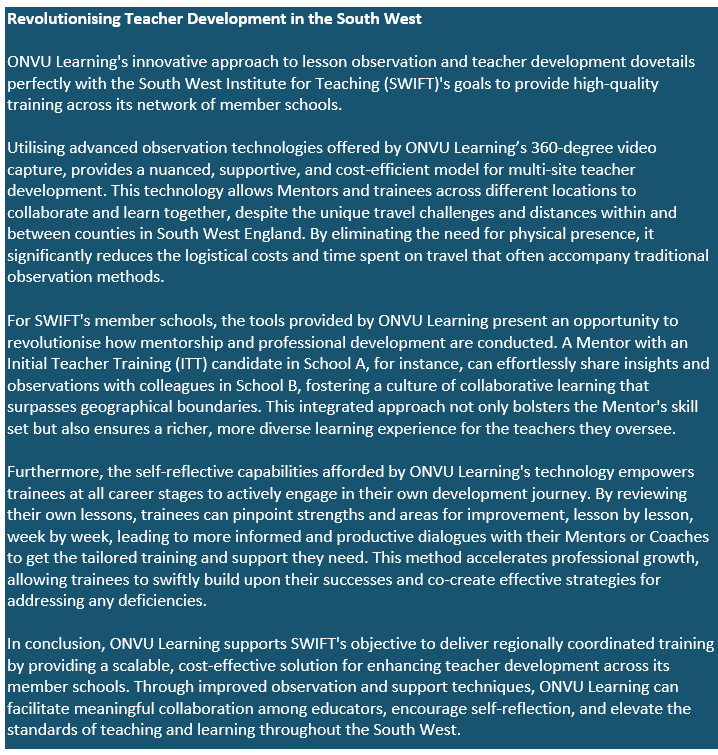



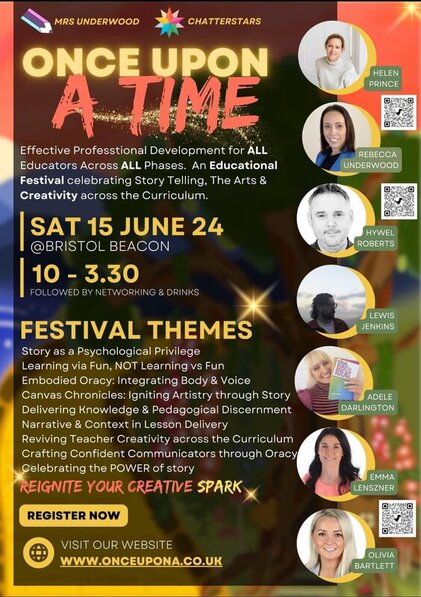
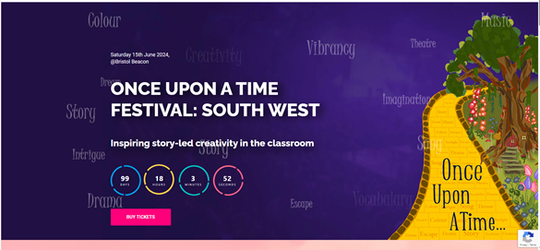

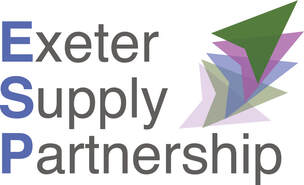
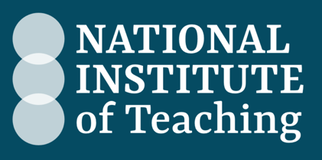
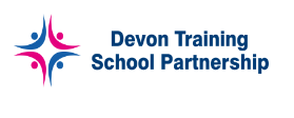
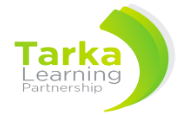



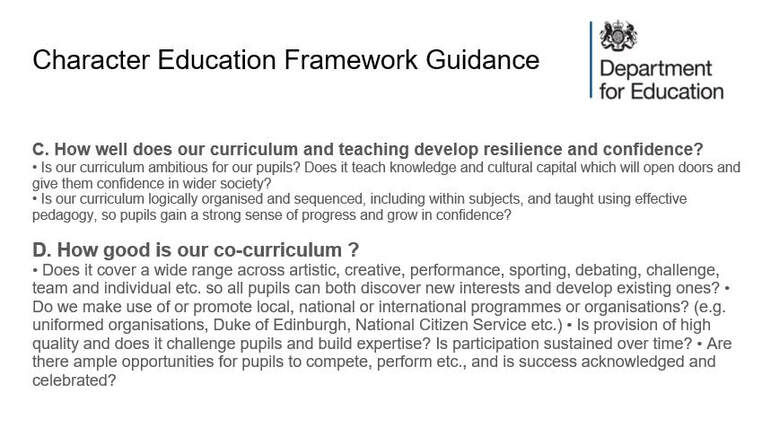
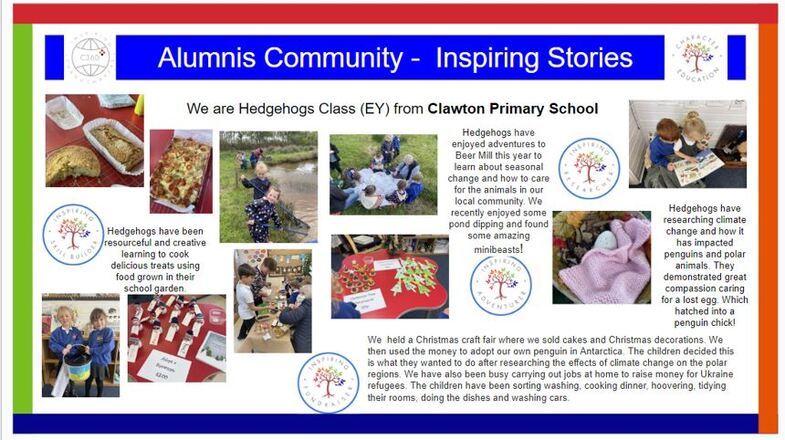
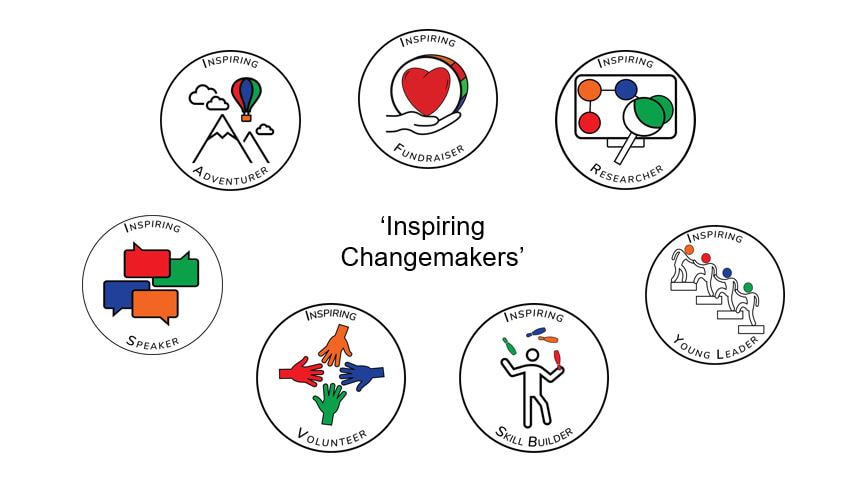
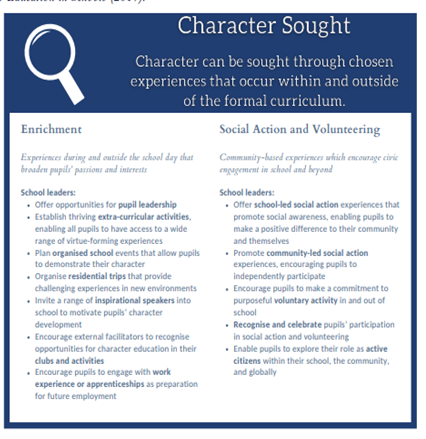



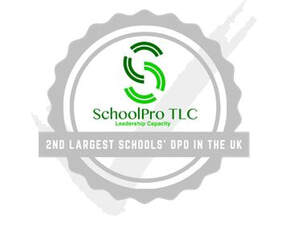
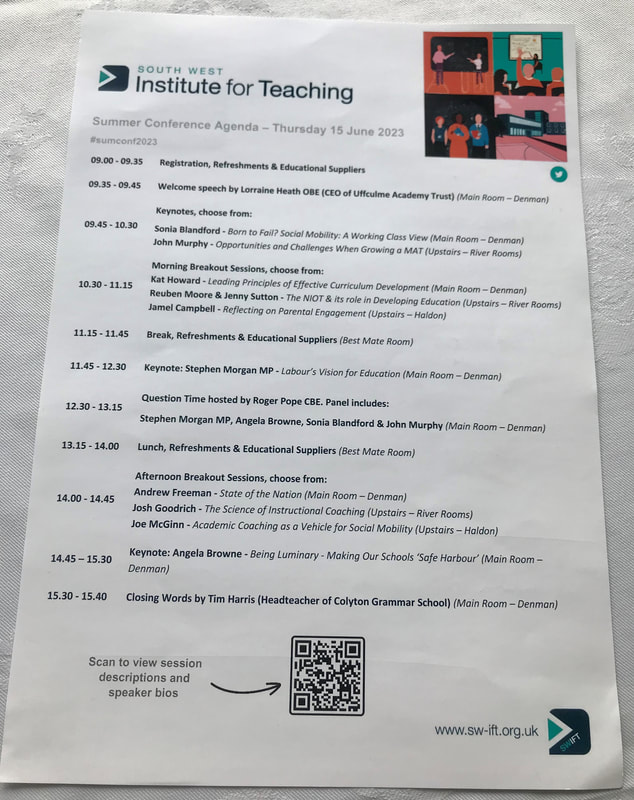
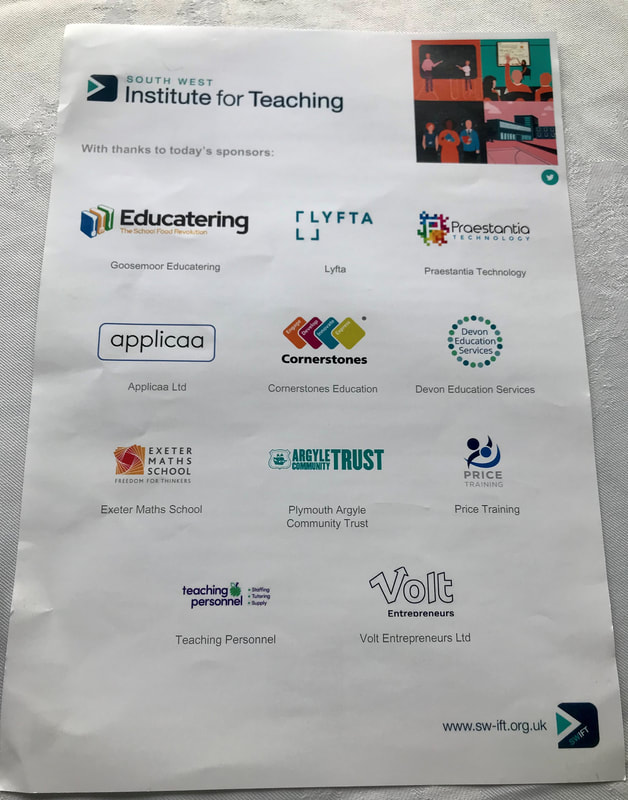
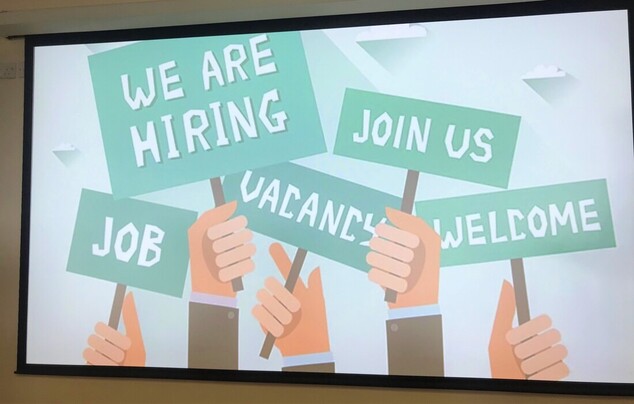

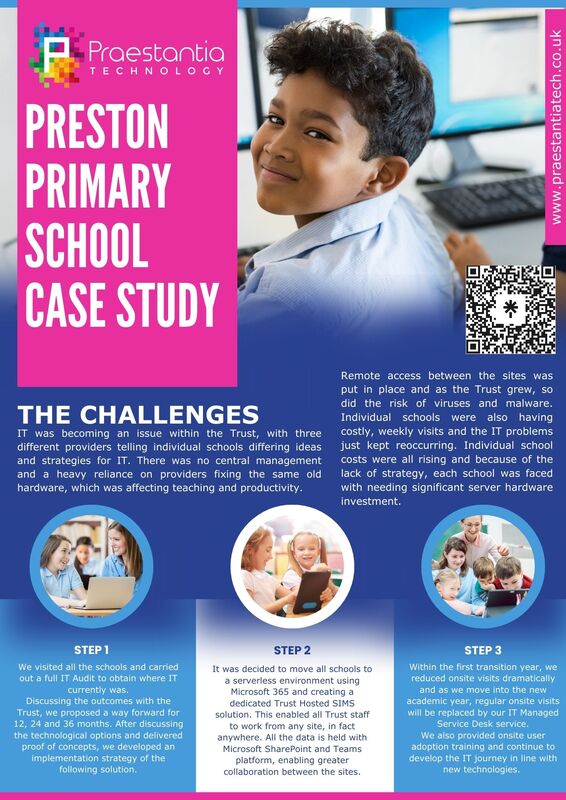


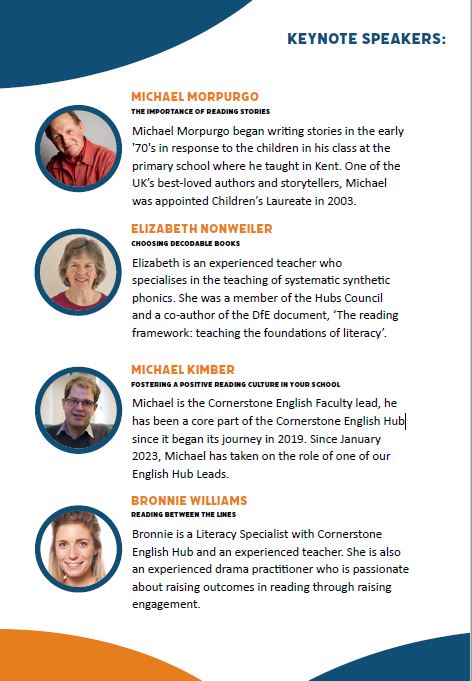
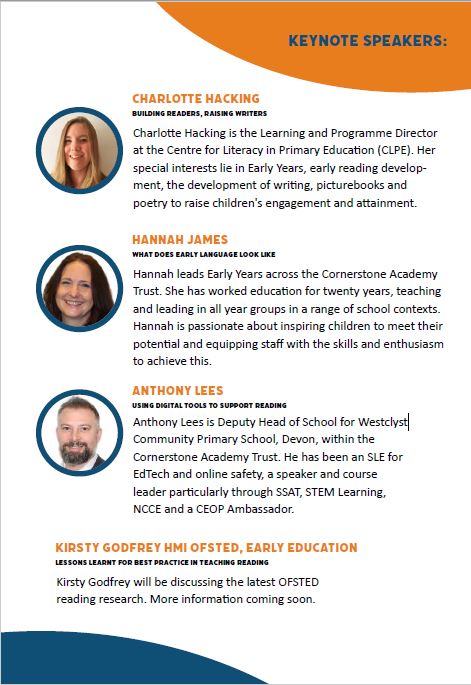


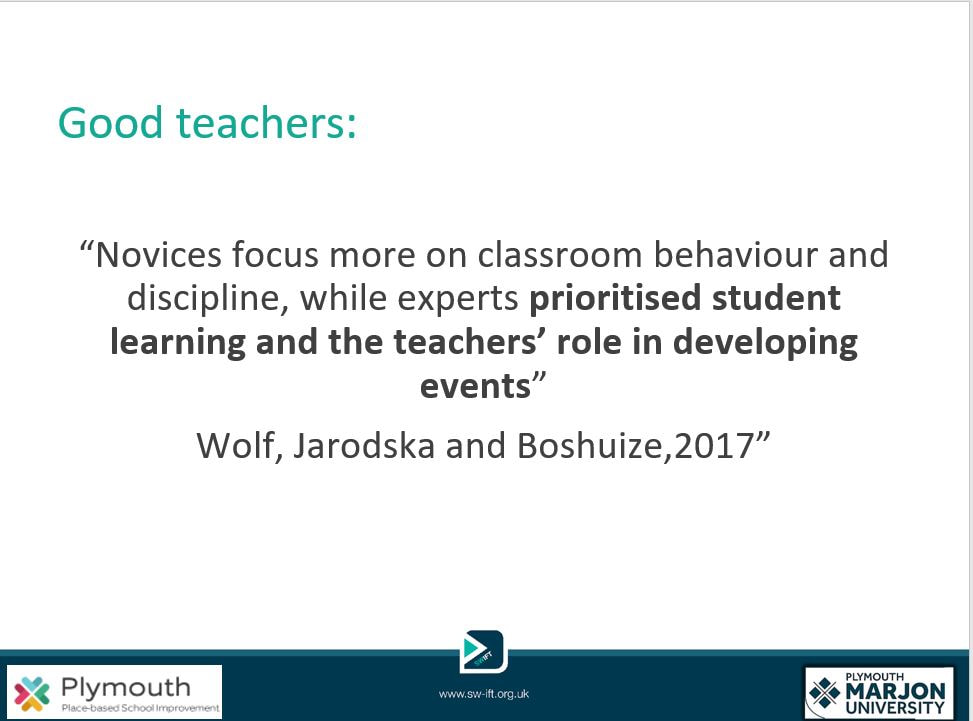
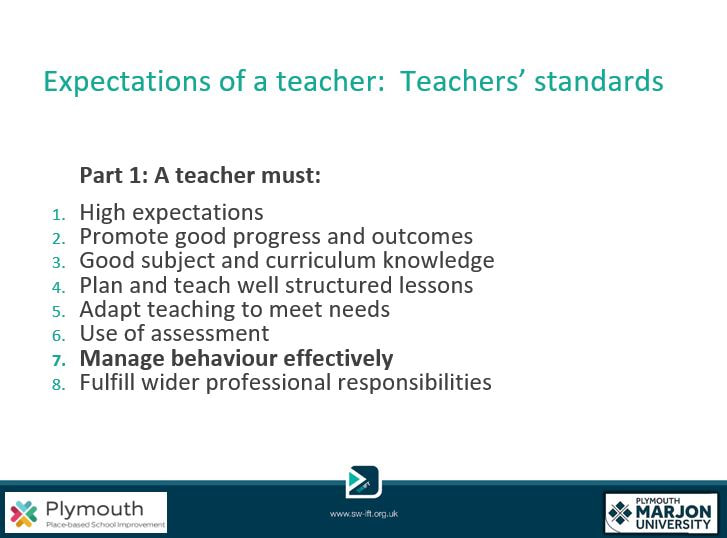
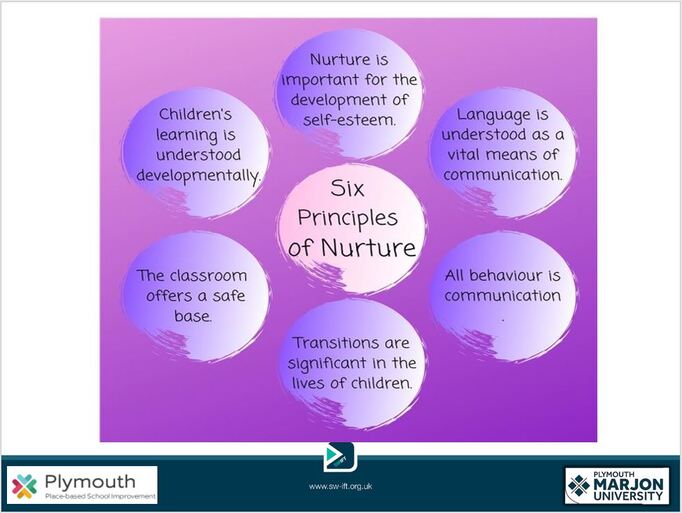
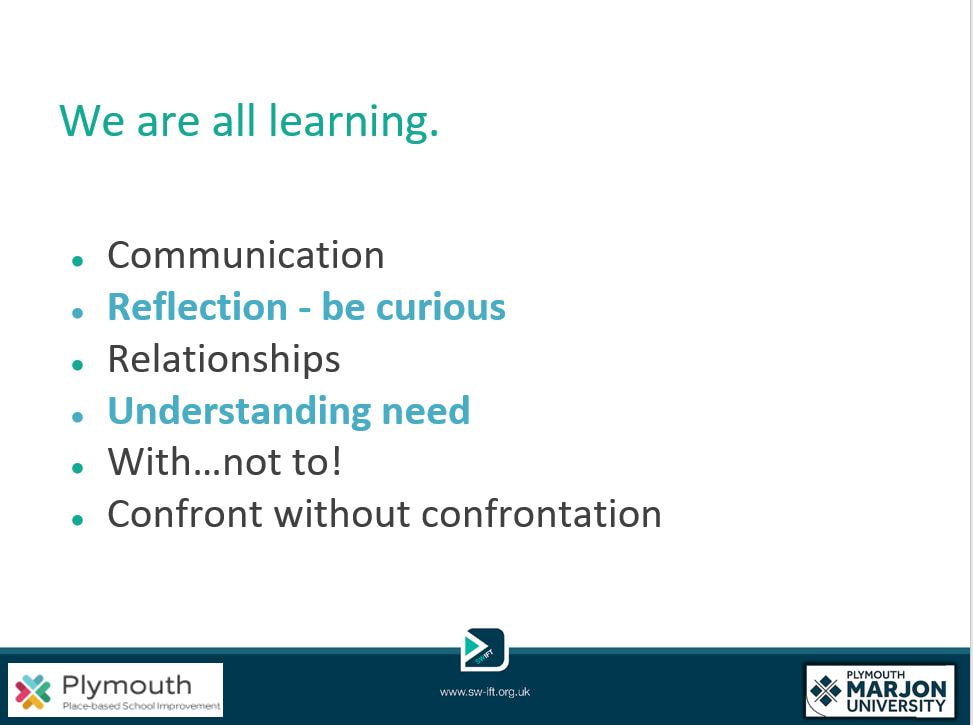
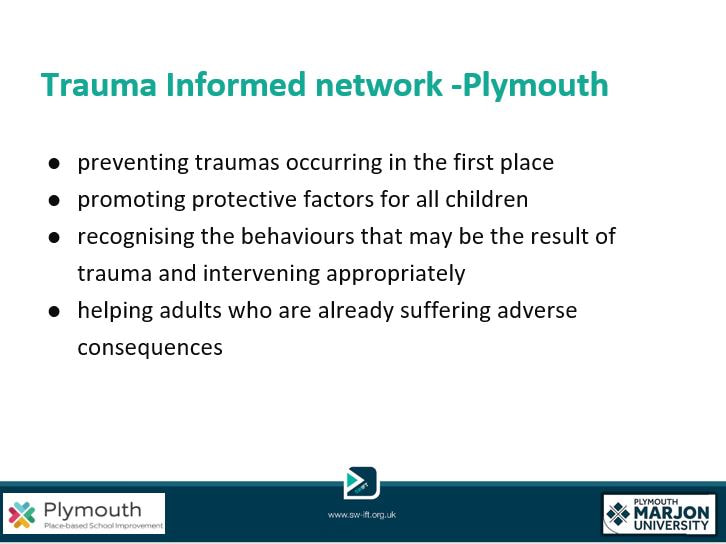

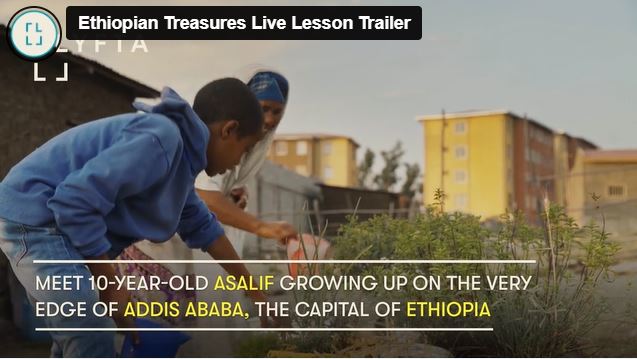
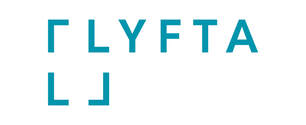
 RSS Feed
RSS Feed





